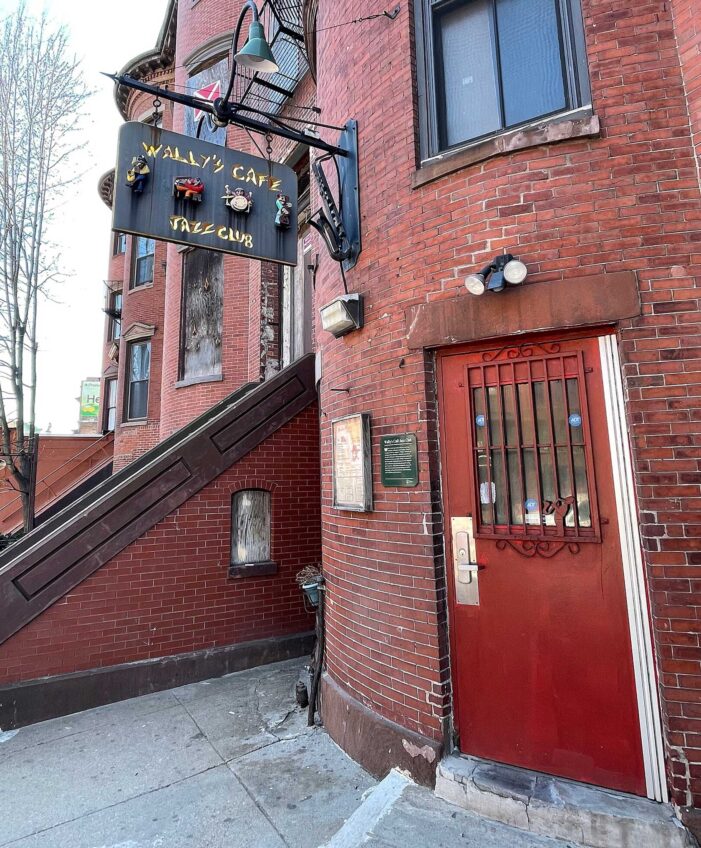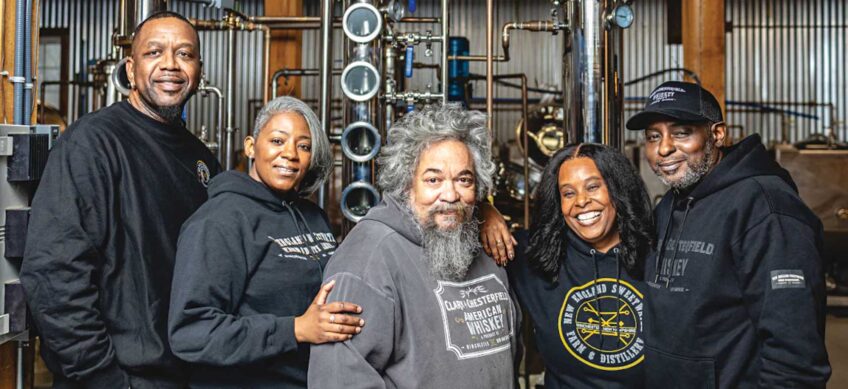
When Maxime Charles sought to start his own construction management business, he relied on $60,000 he’d saved up while working for other construction firms.
Originally from St. Marc, Haiti, Charles graduated from English High School, then earned an undergraduate degree in construction management from the Wentworth Institute of Technology in 1994. He went to work for Boston Capital, serving as a construction manager on projects across the country, then worked as a construction manager for State Street Bank.
All the while, he held onto his dream of going into business for himself, working side jobs to save up.
In 2003, Charles hung out his shingle, starting Mass Construction & Management with six employees.
It wasn’t easy getting started as an entrepreneur.
“When you don’t have a project, you don’t get a paycheck. It’s scary,” he said. “It’s much easier getting a paycheck from someone.”
Charles opened an office on Washington Street in Dorchester and began bidding on projects. He started with small projects, $300,000 and below. State government contracts kept the work moving, but in a system where the lowest bidder wins, the profit margins on such work aren’t always conducive to business growth.
“You’re competing against 20 to 30 bidders for the lowest bid,” he said. “You’re competing against firms who bid at cost just to keep their people working.”
Bonding capacity
Over the last 11 years, the company has grown steadily. Charles now employs 40 people and works out of an office in Stoughton that affords his business more storage space than his former Dorchester office.
Like many construction business owners, Charles is looking to continue to grow by expanding his bonding capacity — the amount of money investors will commit to projects his firm undertakes. Construction bonding insulates clients against financial loss stemming from construction disruptions or delays.
“We have a bond capacity of $10 million,” Charles said. “We want to get to $25 million over the next five years. It’s small and consistent growth.”
For that, Charles says, his firm will have to take on incrementally larger projects until it more than doubles its capacity.
Currently, Mass Construction & Management is working on a $2.5 million project at an East Boston branch of the Boston Public Library. As construction manager, his firm supervises the project, subbing out work for plumbing, the HVAC system and electrical work. His workers will complete the finish work.
University work
What Charles finds even more promising however, is a $150,000 job rebuilding a computer lab at Northeastern University. While the project is relatively small for his firm, he says it will give him a foot in the door with local universities.
“The experience we’ll get is worth it,” he said. “You’re working for a prestigious university. If you perform at a high level, it really looks good in your portfolio.”
The university gig points to an avenue of growth Charles says he would like to pursue.
“We want to be a premier general contractor for small-to-medium-sized projects in local schools,” he says.
Certain demands come with university work. Because much of the work takes place between semesters, the time frame can be tough.
“The work is fast-tracked,” Charles says. “We’re renovating a lounge. They want the work done within six to seven weeks, before school starts.”
On the positive side, area colleges and universities can provide a steady stream of jobs.
“The work is always there,” Charles says.
Although his brother was a general contractor, Charles did not work his way up in the construction trades. He started on as a general contractor fresh out of college. Part of the satisfaction he derives from the work comes from seeing a project completed. A greater part, he said, comes from seeing his workers head home with a paycheck.
“I come from a country where the level of unemployment is extremely high,” he said. “When you own a business, you can help people gain access to jobs with good wages.”
Charles is a vice president at the Massachusetts Minority Contractors Association, an association founded by the giants among black construction and management firms, including the late Ken Guscott and John B. Cruz III. Charles is quick to say his business stands on the shoulders of the early black contractors who opened doors for his generation in the notoriously competitive and insular world of Massachusetts contractors.
Now, working with the minority contractors group, Charles is trying to do the same.
“We strive to help other minority contractors make it,” he said.







